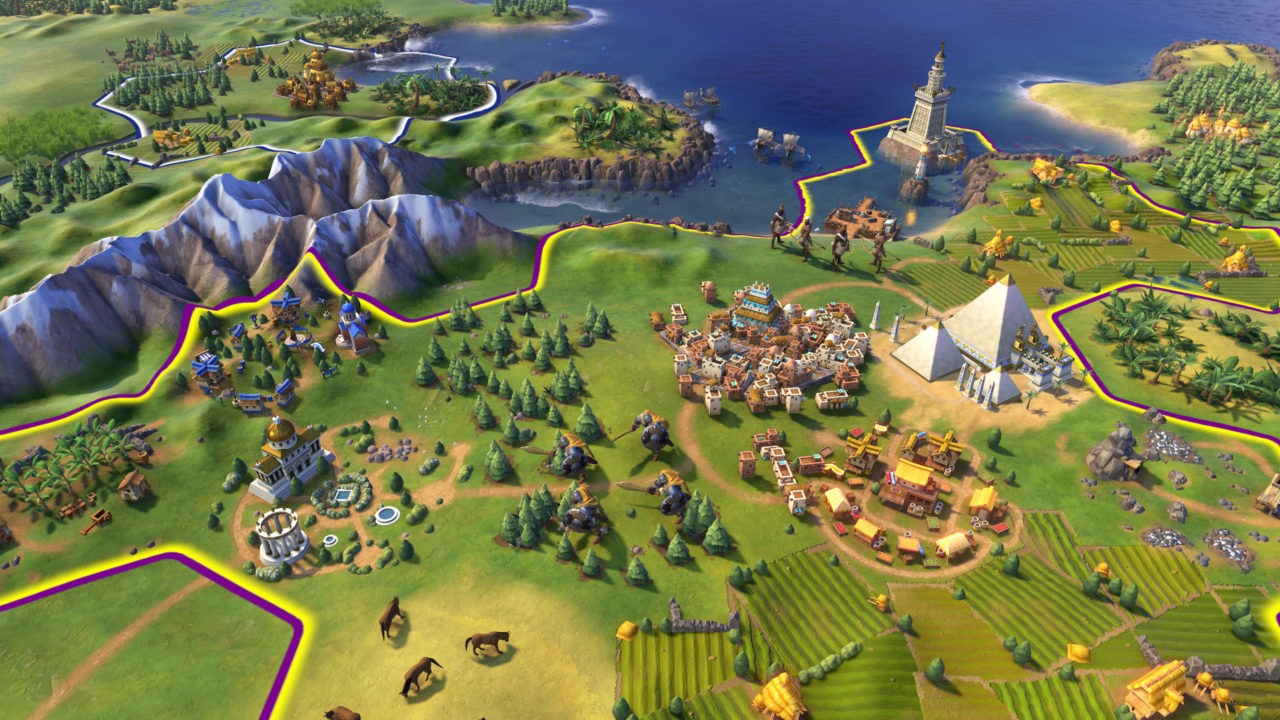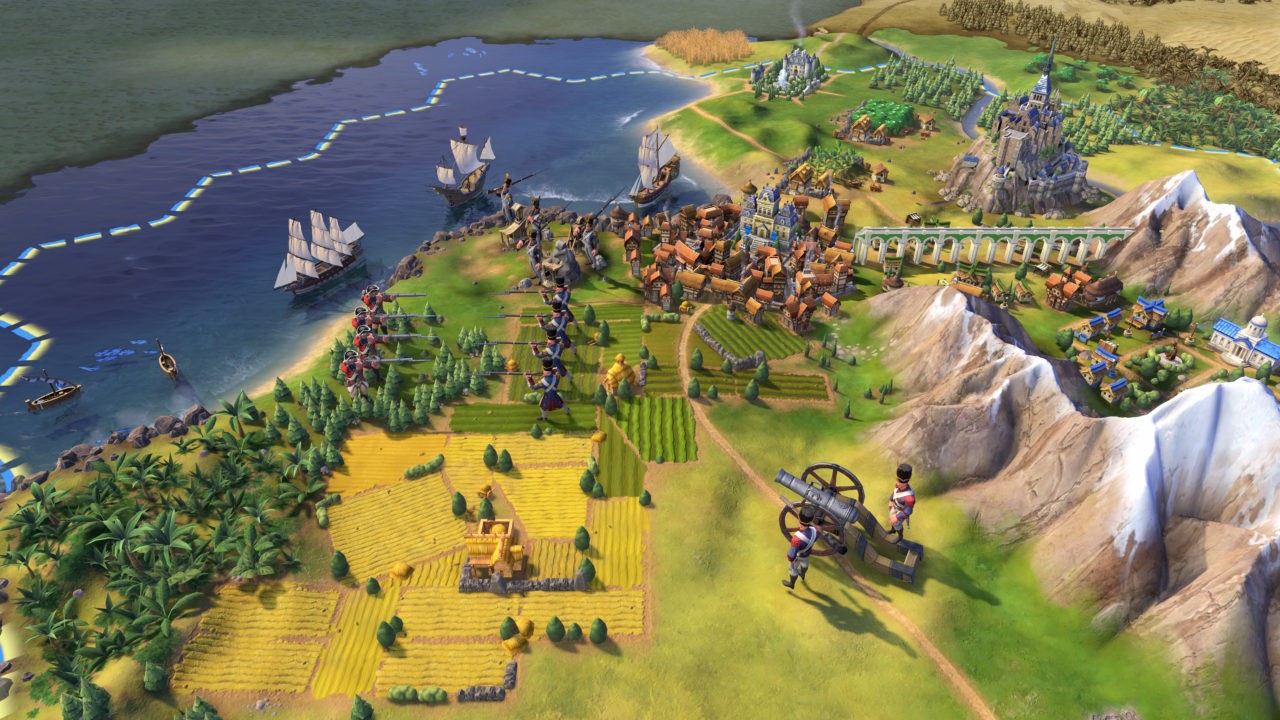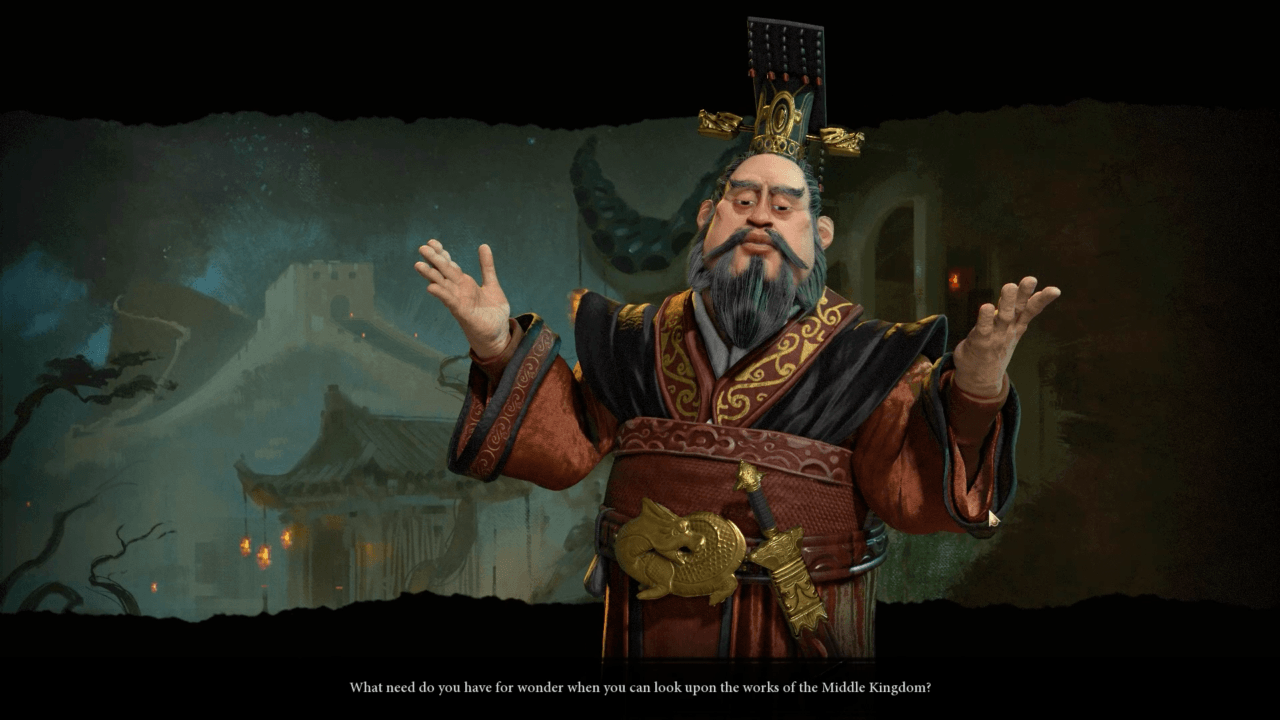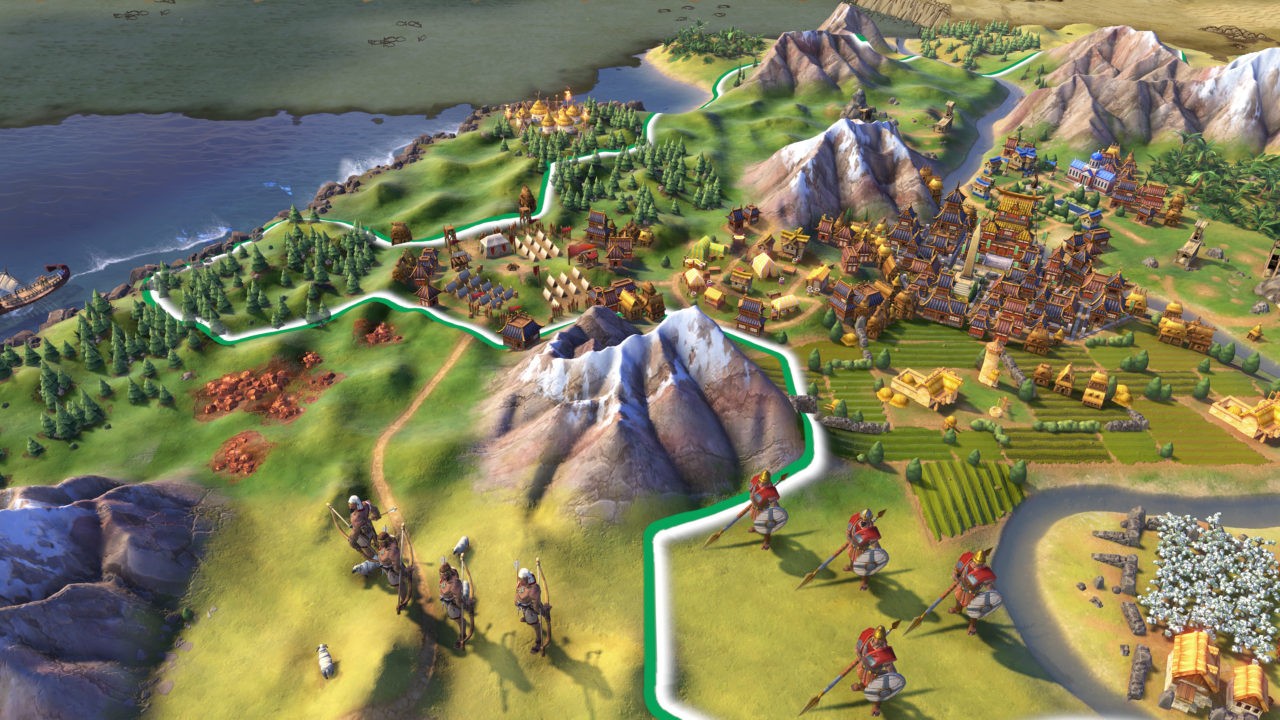Civilization VI isn’t just another brilliant entry in a series known for greatness, it’s the perfect starting point for people who have never before taken the plunge with the long-running 4X turn-based strategy series.
To be clear, my knowledge of Civilization VI is far from complete. The in-game encyclopedia is as monstrous a volume of information as anything you can find in gaming, and the numerous interdependencies of the game’s systems and subtle intricacy of design will defy all but the most devoted players to fully master.
Luckily, that’s fine. Civilization is happy to explain itself when necessary, and decisions are designed to be made with the sort of limited information with which any prospective leader must contend.
I must admit, I’ve had a difficult time summarizing this game for a review. I’ve been vascillating between a deep and thorough examination of systems and a much more general opinion on the game’s overall quality. The first approach would result in a review that was dozens of pages long. The second would barely fit a news blurb.
Civilization VI isn’t just a series of missions with a grizzled protagonist fighting the odds and shooting anything and anyone who stands in his way. It’s not an epic party-based adventure to rewrite the fantastic history of a faraway land. Like civilization itself, the game is played as much against ourselves as our opponents. It’s a game about humanity, about how and why we fail or succeed.
You can win Civilization VI without firing a shot. You can paint your country in a thick shell of gold and watch the nations come and marvel at its splendor. You can exert your influence through sheer progress and become the standard of humanity’s capacity for innovation. And, if you like, you can take every scrap of land by the sword and sit upon a bloody throne that looks out over the entire world.

Whether you decide to focus your civilization on science, religion, cultural influence, or military dominance, your civilization will tell a unique story. That’s because this time around, Civilization has more variables than ever before. The pace of evolving policy or technological advancement is further complicated by cities that grow and build outward onto the map itself, adding a distinct layer of strategic city-planning to the already complex mix of factors you need to consider.
That complexity isn’t just relegated to strategic tile placement, either. You’ll need to manage trade routes, historic “Great People” that must be attracted to your country, bought with gold, or converted to your religion. There’s espionage, and even archaeology. It can make beginning the game feel almost mind-numbing. These aren’t concept being gradually introduced with expansions for veteran players. It makes Civilization both as compelling and daunting as it’s ever been.
On the upside, it feels as if your decisions are always important. I’ve frequently found myself poring over dozens of little decisions, endlessly hesitating before I dare end my turn. There is always another factor to consider, always another possibility that might turn even the gravest of circumstances into sudden triumph.
The only real way to understand what’s set before you is to go through a tutorial scenario. It’s quite long — covering the entirety of a single game even on a small map can take hours — and for no reason I can understand, does not allow saving. It’s a shame, because that tutorial will certainly be the difference between enjoyment and frustration for many players new to the series.

I’m going to try and pick apart some key details of gameplay without descending into minutiae, examining a few things that make Civilization VI unique, even within the context of the franchise as a whole. Let’s start by going back to the cities themselves.
Instead of having self-contained cities in which everything is automatically placed, Civilization VI has separated the most vital parts of your growing empire into urban districts. There are more than a dozen all told, each with very specific benefits and requirements to be met in order to make them as productive as possible. Districts must consider the terrain they are built upon, the terrain that surrounds them, and their adjacency to other elements of the city. A savvy player will envision his city before it’s built and plan its output based on what will operate most efficiently in that area.
As your city grows, you’ll unlock new Science and Civics paths to advance or completely change elements of technology and civil society. Advancements in science will benefit every aspect of the game. A single swordsman is an overwhelming challenge for several club-wielding brutes, and a knight will handily destroy them all. While combat uses a typical rock-paper-scissors tactical configuration, my own experience suggests that a primitive nation has very little hope against one that has equipped itself for the future.
All the while, you’ll be accumulating points toward Great People. These special units may have active bonuses — Great Generals, for instance, often buff nearby troops — or abilities that manifest when you “retire” them onto specific tiles. Others will create Great Works of art, music, and literature. Those artifacts will increase the cultural production of the cities in which they are displayed and will attract tourists from all over the world to appreciate them.
The various world leaders are just as a diverse a group, and with even more personality than we’ve seen in past games. It’s not just because of the wonderfully detailed animated depiction of each, though that certainly doesn’t hurt. Their personalities manifest themselves in the way they organize and expand their nations, and each can be markedly different.

Every leader has opinions on various actions, and some are much harder to please than others. To make things more interesting, each also receives a random hidden agenda, which you can only uncover by building a robust intelligence network. Sometimes, however, it doesn’t help. Like in every game before it, the AI in Civilization VI sometimes makes decisions that seem utterly insane. It might interpret your growing military as a sign of strength in one turn, and then the next change from showering you with praise to decrying your newfound power. So, not too different from real life, I suppose.
The advancement in Science and Civics is also bolstered by performing certain actions. If you’ve killed an enemy unit with a slinger, it will only take half the time to research archery. This adds another way of approaching new developments, allowing even technologically sluggish civilizations to keep up with ivory towers of intellect if they’re proactive on the game map. It also means that chance events — the discovery of a natural wonder, for instance — can directly shape your available opportunities, opening new paths to victory you may not have otherwise considered.
All of these things and more combine to create a Civilization game with more variation at launch than any in the series. And because the UI displays all of the information so completely, it’s easy to track everything that’s happening, so long as you know what to look for.
And really, that’s the only major rough patch in Civilization VI. It’s not always easy to know what to look for, and there is a lot of potential information to digest. The game doesn’t come with its own virtual encyclopedia without reason. Luckily, it’s also perhaps the easiest game to learn. Once you understand how basic systems and elements behave, the rest is almost always a matter of logical deduction.

Finally, the game’s graphics and sound are both excellent. Developer Firaxis has veered toward stylized depictions rather than strict realism, and the game benefits from the direction. And a sumptuous soundtrack overlaid with Sean Bean’s voice is a pretty easy sell.
Load times can be an annoyance — longer, larger games will eventually take several minutes to resume — but once the game is in progress, performance seems solid all around. It’s refreshing to play a game that doesn’t immediately beg for serious patches, and no game-breaking bugs were evident in the entire course of my time with the game.
Civilization VI is heartily recommended. It’s just about the best possible way to introduce yourself to the 4X strategy genre, if you have the patience to learn. Its incredible level of variation between individual games is by far the best in the series’ vaunted history, and it oozes a memorable personality that will help to create the story of your nation. For returning players, it packs enough content into the launch package to stand up to past entries, even with their expansions. And while it may have some rough edges and occasionally bizarre AI, Sid Meier’s Civilization VI is on track to be both the best Civilization game, and a superior strategy experience in its own right.
Follow Nate Church @Get2Church on Twitter for the latest news in gaming and technology, and snarky opinions on both.

COMMENTS
Please let us know if you're having issues with commenting.